Maritime Soft Skills Content
The maritime profession around the world has come under pressure in the last decades because of a series of changes in environmental regulation, digitalization, changing technology and globalization of the world economy. In many shipping companies, maritime professionals are expected to do a lot more and different than just the traditional functions.
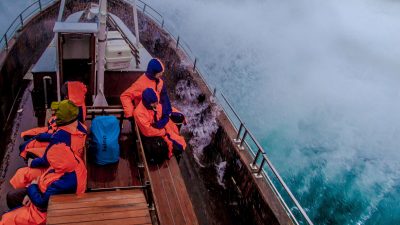
Nowadays, a ship is a business mechanism, with strong ties to the ship owner’s office, the charterer’s office, the forwarding office etc. While no one can disagree that technical knowledge and hard skills are very important knowledge, it is hard not to point out that those alone are not enough to address all the challenges which arise in the modern shipping era.
The need for Soft Skills
The maritime profession requires more than applying rules and regulations. It requires more creativity and innovative thinking in order to be competitive.
The ship’s crew should act as a team, ready to overcome problems arising on their way.
It should also be knowledgeable about the shipping business, so as to better understand its role in the process and to better communicate with all stakeholders of the maritime transport community. Officers should act as team leaders, a master should also be the ship’s manager. Besides, being master mariner is not the top of the career, but also the beginning of shore based career. In this context, the introduction of Soft Skills is a prerequisite so as professionals will be able to respond to the contemporary challenges of the maritime profession.
The maritime professional bodies in all over the world have recognized the critical importance of the development of Soft Skills and attributes for maritime professionals such as: communication, teamwork, critical thinking and problem solving, creativity, diversity and multicultural issues, moral and professional ethics.
Our content combines international, well-known and approved models with training material that is based on case studies and other raw material related to maritime industry and developed as part of the iSOL-MET program.
In the iSOL-MET program, an Erasmus+ program, partners developed maritime case studies and examined the case study method as a tool for developing Soft Skills. In addition to a large number of case studies, plenty of examples and stories have also been collected, sorted and processed to serve certain learning objectives.
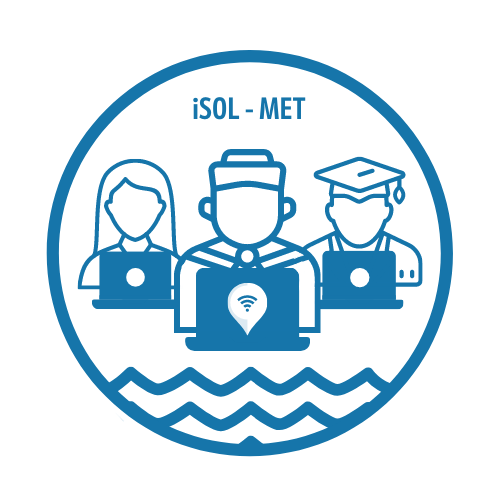
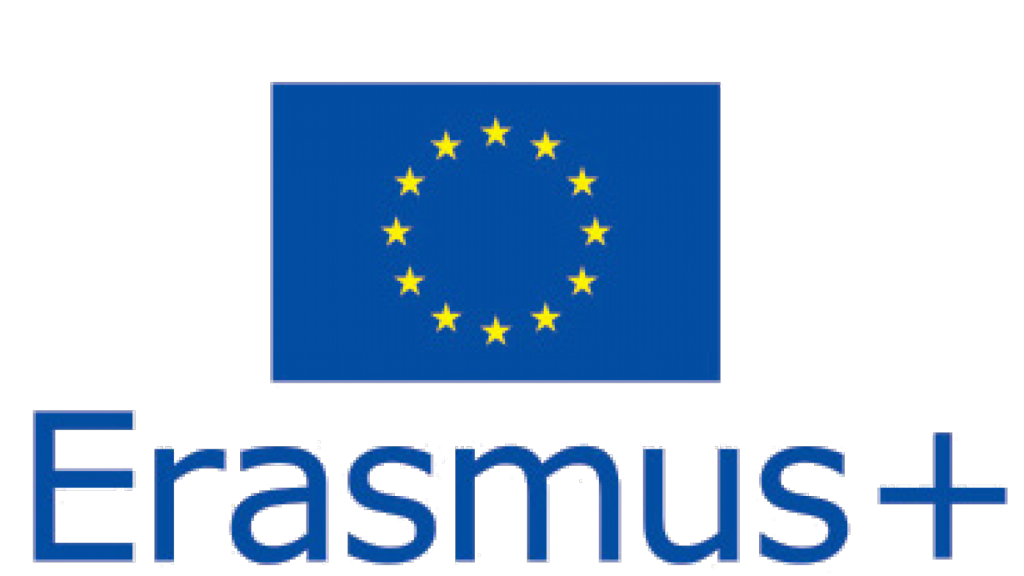
The case-study method is known for its effectiveness in developing “real-life” professional skills, encouraging learning through students application of knowledge to maritime business cases, enhancing the relevance of their learning and promoting their understanding of concepts.
- Case studies have been identified in collaboration with Maritime Industry Experts.
- The criteria for the final selection of the most effective cases are the geographical coverage, achieving a balance in both operational and managerial cases, ship and office, coverage of a wide range of soft skill.
- Courses are designed so as to satisfy both industry needs and IMO’s model courses.
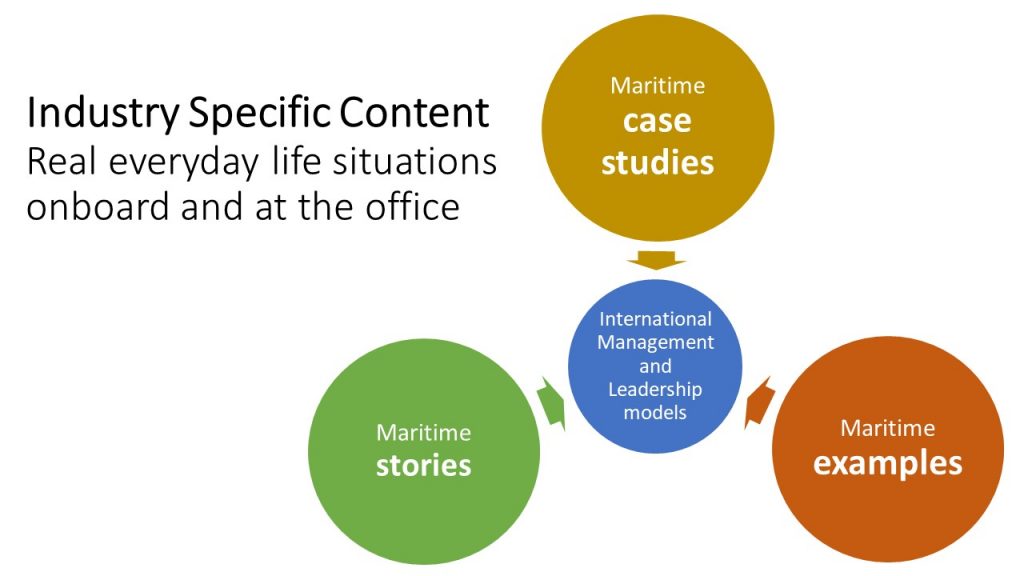
In respect to the teaching methods, specific communicative events analysis, role playing and simulation practices are used, so as participants to:
- Immediately apply the content of each course in a realistic context.
- Engage themselves in the learning process.
- Better interact with their course mates.
- Diverge from the confines of their normal self-imposed limitations or boundaries.
What is a case study?
Each case study provides the “chain of evidence”, meaning explaining the process and the outcome of specific phenomenon, through reconstruction and analysis of the actions, the behaviors, the personalities and the motives of the people involved.
In this context, each case includes description of the event, analysis of internal and external conditions, link to regulations, results of undertaken actions. Furthermore, human factor is analyzed and identifies how crew’s or employees’ choices affected the outcome, which would be the preventing actions etc.
Each case combined with examples and stories provides an eco-systemic and holistic approach to develop Soft Skills.
We design comprehensive and cohesive courses for the development of the much-wanted Soft Skills. We train the sea and shore-based professionals. Specifically, we develop Soft Skills much needed in the learners’ toolboxes, such as the cooperation in the context of interdisciplinary groups, the communication between sea and shore-based maritime personnel, leadership, management of multicultural groups etc.
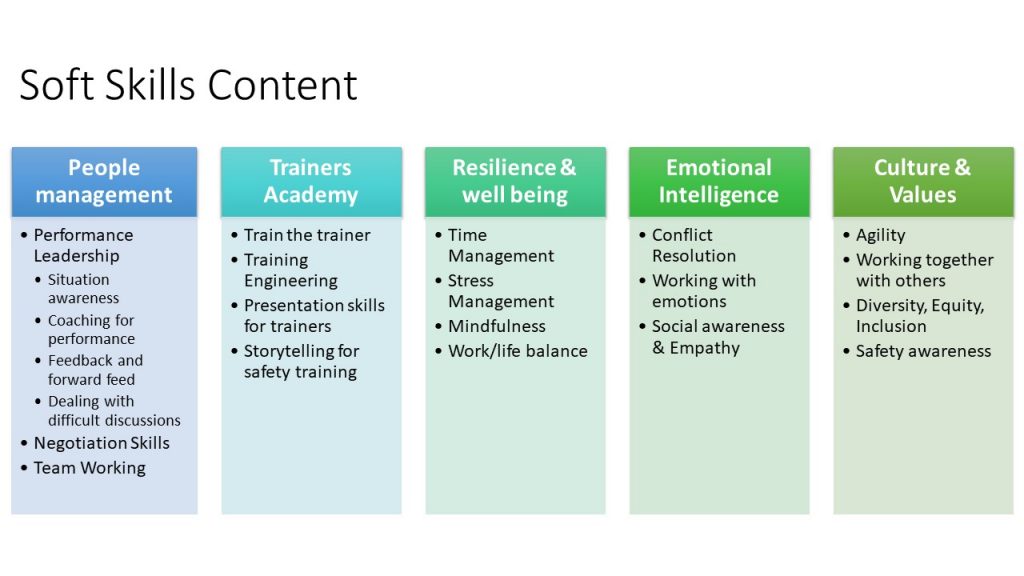
- Content of the courses combines hard knowledge and soft skills.
- Design of the course is based on relevant to industry training material.
- Teaching and learning methodology, is a blend of problem and competency, based learning processes.
We provide Soft Skills evaluation tools for trainers, HR departments or managers. We create your Assessment or Development Center (AC) for systematizing the process of Soft Skills evaluation, using industry specific material, like case studies.
Assessment Center
An Assessment Centre (AC) is a selection process that is often used in Graduate Recruitment Programs. At an Assessment Centre, the candidates undertake a variety of exercises designed to evaluate various skills, whilst being observed and assessed. The structure and format of the AC, could vary enormously depending on the skills being sought and, in particular, on tasks the graduate trainee will face. Some jobs require extensive teamwork, and high levels of communication skills. In others, you may have to work autonomously, and the exercises chosen for the Assessment Centre will reflect this.

Assessment centers are seen as more fair than paper-and-pencil tests or job interview. Because candidates are evaluated on how they act in situations that an employee would commonly encounter on the job. They generally have higher validities than single-test selection procedures.
The focal point of most Assessment Centers is the use of simulations. The principle of their design is to replicate, the key aspects of situations that an employee would commonly encounter in the job for which he/she is being considered. To gain a full understanding of a person’s capabilities, usually several simulations are needed, to develop a complete picture. A case study is a form of simulation. Specific industry case-studies are useful in an assessment center for selection and management development inside a maritime organization.
Development Center
While Assessment Centers are focused on selection process, Development Centers assessment goal is to leave the “one-fits-all” approach and concentrate on targeted individual training needs. Thus investing training budget efficiently and effectively as well as increasing employee retention.
Assessment and development centers:
- Ensure consistent new employee ramp up to performance
- Ensure efficient and effective talent management
Our training content and the designed soft skills courses can be delivered using various delivering methods and technologies or a combination of them.

Our content recount—as objectively and meticulously as possible—real (or realistic) events or problems, so that learners experience the complexities, ambiguities, and uncertainties confronted by the original participants in the case or story. As they “inhabit” a case, learners must tease out key components from the real messiness of contradictory and complicated information.
Cases compel students to :
- Distinguish pertinent from peripheral information
- Identify the problem(s) at hand and define its context and parameters
- Identify a set of possible solutions
- Formulate strategies and recommendations for action
- Make decisions
- Confront obstacles to implementation
Benefits
Participants in our soft skills workshops will benefit in various and many different ways:
- Better understanding of the industry needs make instruction realistic, relevant and stimulating.
- Engage intellectually and emotionally through their involvement in virtual decision-making, sharpening their analytical, problem-solving, and management skills by sparking insight and creating connections between events, incidents, or systems.
- Recognize and adopt “growth” mindset, understanding that their capacities are expandable. Course design and applied methodologies will allow learners to make performance errors with specific remedial feedback. Learners’ mindset shifting is expected to affect their performance and motivation.
- Meet the demand of highly skilled maritime professionals and enhancing employment possibilities.
- Improve their attractiveness as maritime professionals and remedying to the observed lack of soft skills academic education.


